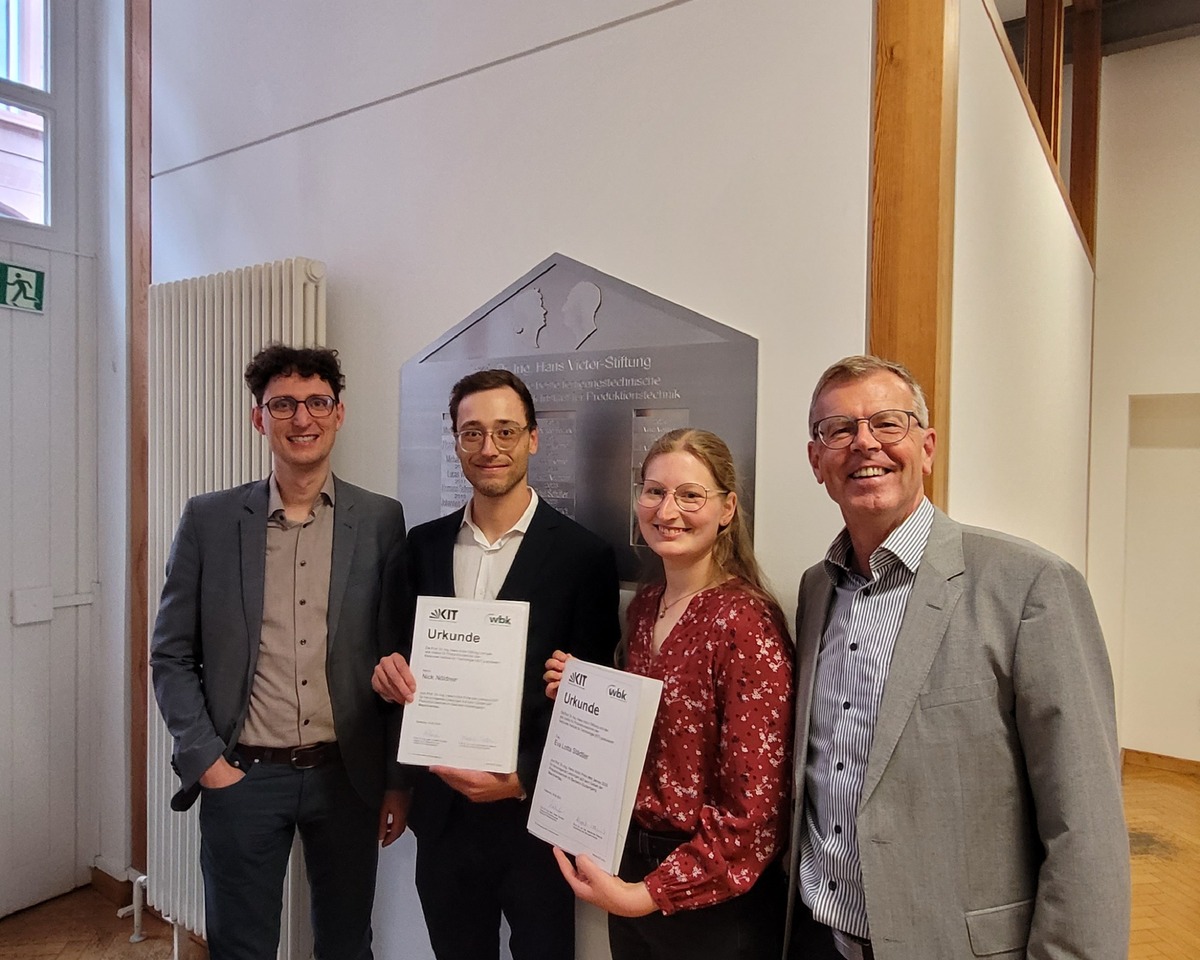Dr.-Ing. Hans Victor-Preis
The Institute of Manufacturing and Materials Technology awards an annual prize for the best thesis related to manufacturing and materials engineering. The prize is awarded to one outstanding thesis from the Cutting team and one from the Additive Manufacturing team. The prize recognizes students who have made a special contribution to research and development in these forward-looking fields through their work.
A thesis with us offers much more than just an exciting topic. Students work in a research-oriented environment with direct links to industry and have the opportunity to learn about modern methods, current issues, and the latest technologies.
Why additive manufacturing?
AM is considered a key technology of the future. From lightweight construction in aerospace to individualized medical technology and innovative tool concepts, additive manufacturing of metallic and ceramic components opens up completely new possibilities. A thesis in the field of AM means actively participating in the further development of this technology and directly shaping innovations.
Why cutting?
Machining is also a highly topical field of research. With increasing demands for efficiency, precision, and sustainability, new challenges are constantly emerging—from the machining of high-strength materials to intelligent process monitoring and the digitalization of manufacturing. Those who write their thesis in the field of cutting are helping to make this core technology fit for the future.
A thesis at the FWT combines scientific work with practical added value, opens up excellent contacts to industry, and provides an outstanding foundation for your future career—whether in research or industry.
2025
Herzlichen Glückwunsch an die Gewinnerinnen und Gewinner des Hans-Victor-Preises 2025
für herausragende Abschlussarbeiten im Bereich der Fertigungs- und Werkstofftechnik!
Lotta Städler untersuchte in seiner Arbeit den Einfluss der Prozessparameter im PBF-LB-Verfahren auf die Fertigbarkeit und Oberflächeneigenschaften dünnwandiger Strukturen – und konnte die gewonnenen Erkenntnisse erfolgreich auf Gyroid-Gitterstrukturen übertragen.
Nick Nöldner überzeugte mit seiner Arbeit zum Einsatz Künstlicher Intelligenz in der Zerspanung, in der er neue Sensortechnologien erprobte und deren Potenzial zur Prozessüberwachung und -optimierung aufzeigte.


